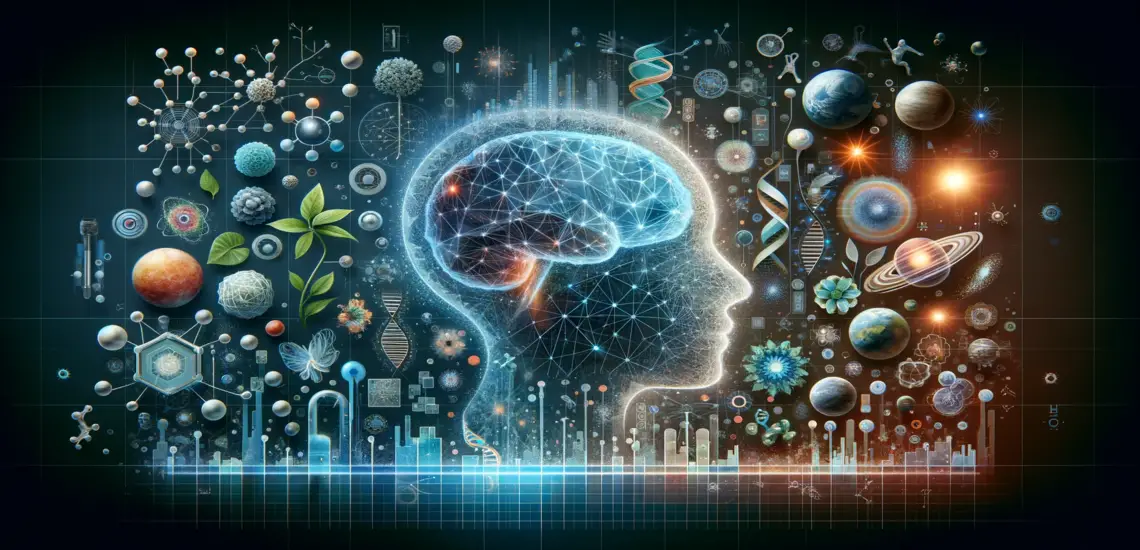Artificial Intelligence (AI) has become a transformative force across various fields, and its impact on the natural and physical sciences is particularly noteworthy. The marriage of AI and scientific exploration has opened new frontiers, enabling researchers to tackle complex problems, make predictions, and accelerate discoveries. In this blog, we will delve into the ways AI is revolutionizing the landscape of natural and physical sciences.
Data Analysis and Pattern Recognition:
One of the primary strengths of AI lies in its ability to analyze vast amounts of data swiftly and identify intricate patterns that might elude the human eye. In natural and physical sciences, where data sets can be massive and multifaceted, AI algorithms excel at recognizing trends, correlations, and anomalies. This capability significantly enhances the efficiency of scientific research, allowing scientists to draw meaningful insights from data-rich experiments and observations.
Drug Discovery and Material Science:
In the realm of drug discovery and material science, AI is making substantial contributions. Traditional methods for identifying potential drugs or innovative materials are often time-consuming and expensive. AI algorithms, particularly machine learning models, can predict molecular interactions, assess chemical properties, and propose novel compounds with desired characteristics. This accelerates the drug discovery process, leading to quicker identification of potential treatments for various diseases.
Climate Modeling and Prediction:
Understanding and predicting climate patterns are crucial for addressing environmental challenges. AI plays a pivotal role in climate modeling by processing vast climate datasets, simulating complex interactions, and making accurate predictions. Machine learning models can analyze historical climate data to forecast changes, helping scientists and policymakers develop strategies for mitigating the impact of climate change.
Astrophysics and Cosmology:
In the vastness of the cosmos, AI aids astrophysicists and cosmologists in sifting through astronomical data. Telescopes and observatories generate colossal amounts of information daily. AI algorithms assist in classifying celestial objects, detecting transient events, and identifying potential areas of interest for further exploration. This automated analysis expedites the pace of astronomical discoveries.
Quantum Computing Advancements:
AI’s synergy with quantum computing holds immense promise for solving complex problems that traditional computers struggle with. Quantum machine learning algorithms leverage the principles of quantum mechanics to process information exponentially faster than classical computers. This intersection of AI and quantum computing could lead to breakthroughs in simulating quantum systems, optimizing complex processes, and solving problems previously deemed intractable.
Robotics and Experimental Design:
In laboratory settings, AI is contributing to experimental design and execution. Robotic systems powered by AI can conduct repetitive experiments with precision, freeing up researchers’ time for more strategic tasks. AI algorithms can also optimize experimental parameters, helping scientists design experiments that are more likely to yield meaningful results.
Ethical Considerations and Bias Mitigation:
As AI becomes integral to scientific research, addressing ethical considerations and mitigating biases is paramount. The transparency and interpretability of AI models are critical in ensuring the reliability of scientific findings. Researchers must be vigilant in identifying and rectifying biases in data sets to prevent skewed results that could impact the validity of scientific conclusions.
The integration of AI into natural and physical sciences represents a paradigm shift in how we approach research and discovery. As AI technologies continue to evolve, scientists can leverage these tools to unravel the complexities of the natural world, leading to groundbreaking advancements with far-reaching implications for humanity. The collaboration between artificial intelligence and scientific exploration holds the key to unlocking new frontiers and pushing the boundaries of our understanding.

